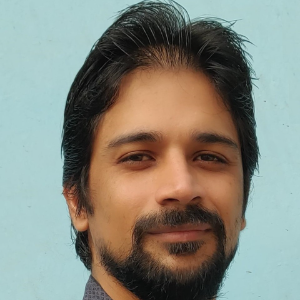Title : Future of hydrogen hybrid renewable systems in Indian cities
Abstract:
Global hydrogen demand was 90 Mt in 2020 showing a 50% growth since the turn of the millennium. Most of this demand comes from refining and industrial uses. Green hydrogen has the potential to play a crucial role in low carbon and self-reliant pathways in the built environment which emits 39% of the global CO2 emissions. As various pilot projects and demonstrations are planned and executed around the world, it is crucial that India also follows through with its goal of being net zero by 2070. Although renewable energy technologies such as solar and wind are picking up the pace, they are marred by the issues of unreliability and instability of the electric grid. The green hydrogen technology is showing promise and concerns which makes it difficult to rule upon the feasibility of its integration in Indian cities. However, this concern can be resolved through robust findings with the help of pilot projects, technical and technological research in the Indian context. This is the time to review the status of hydrogen integration in building and transportation sector in cities around the globe, relevant policies, and technological advancements. One of the major concerns behind Hydrogen integration in cities is the physical properties of hydrogen which warrant additional infrastructure for safe handling and operations. It is critical that the designs accommodate the infrastructure from the conceptual level. The potential end use applications in buildings and transportation will require energy transformations from hydrogen to electricity and vice versa or hydrogen to methanol etc. therefore a certain level of expertise from engineers, and industry experts will lend credibility, and safety in design. Hence, investigation is must for the potential of hydrogen integration in Indian cities, pitfalls to avoid, and possibilities to explore.


